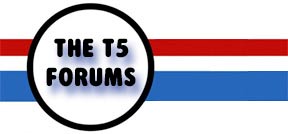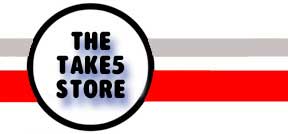Post edited 8:27 am – February 28, 2014 by Mack_me_Bucko
There is a world of more detail that I don't fully understand, but it would involve how the contracts are written, who owns the tooling, the expected life span of the tooling, etc.
For example, we all think of tooling as something made once for posterity and used on-going forever. It isn't nowadays, especially in the toy manufacturing world. Most tooling we see in the toy market is made for short term production, and has a finite life span of 10,000 to 20,000 units — coincidentally just about what some of the Cars are theorized as production runs. There is likely a very good reason why some cars like 'Timothy Truecoat' were made once and are now out of production. The advantage is that with tooling being made by CNC machines, replicating the tooling is easy enough, if a future production run is deemed desirable (the new Kaa Reesu comes to mind).
I know from my time in the model railroad industry, product research and tooling would be planned here in the States, tooling then made in China, and the final goods were shipped back here for final sale. If you want a specific new model train, you buy it now, as it may never appear again, since the tooling wears out, and the manufacturer here in the States has moved on to their next planned project and doesn't care about the few hundred folks who missed a model the first time around. This works to the manufacturer's advantage, largely, since inventory sells fast, and completely, meaning no warehoused stuff to pay taxes on.
Who owns the tooling has been a sore spot for many years, and recently the large German model train firm of LGB lost some minor tooling when the Chinese or Czech vendors they used never got paid in the LGB bankruptcy; so the one Chinese firm started selling "knock-offs" of some of the train cars — but they owned the tooling by then, so are they counterfeits, or what? We know they are from the LGB tooling, and while they aren't made as nicely — but at $25 for two, instead of $100 for one, who cares?
It was common knowledge that if a US firm ordered 10,000 items, the Chinese factory would make at least 10,500 to 11,000 to account for spoilage and damage — as well as to provide a ready source of spares for planned warranty replacements. They honor their lifetime warranty by simply sending you a new model — not repairing the old one you return. Your return then is used as fodder for spare parts. What was unstated in this system was the knowledge that if the vendor made 11,000 units for you, they might actually make 11,500 or 12,000; and sell the extras on the gray market. Unscrupulous plant managers, or simply folks involved who knew the market could easily make side money doing this. In one instance, the US maker was the one doing the back door selling, since they could sell a stock $100 model as a "rare" back door item for $150 — and completely eliminate the dealer market and their mark-ups. Pure profit.
This leads to costs. Personal story. Several years back at an industry trade show I horse-traded some goods with a friend who worked for Life-Like. He got some laser cut structure kits (cost to me, almost nil), and I got from him a new unreleased N Scale diesel (cost to him, nil). I asked if he didn't want more from me, since he was giving me a $100 item, after all. He replied that the item cost more to ship here from China than it cost to make and package. That $100 item he gave me would nominally be sold to a distributor Stateside for $45 — and the maker would likely make a 100% mark-up on that sale, so his cost might be $20 or less — and the intimation I got was that the cost was far less, like a few bucks, tops. We can buy Cars at Walmart for $5 — so I suspect the actual final cost to Mattel of a 'Mater' or 'LMQ' diecast toy is maybe 30 cents — 50 cents in the packaging! Toys-R-Us regularly sold Hot Wheels for a buck and made money on the deal — and a Hot Wheels car isn't all that different than a Cars diecast really. Did my point make any sense in the previous paragraph?
I suspect Mattel pays for and owns most of the tooling now, but I would bet the 'Mack' team haulers were from early tooling they didn't contractually own, and now the Chinese vendor is making money selling goods using that tooling until it finally wears out. I also suspect Mattel is fully aware of this, and knows they cannot do anything about it. My one Hong Kong source says they buy these 'Mack Team Haulers' in an open air vendor fair/market, and has offered to give them design help in making the artwork better, but they cannot reach the actual maker, since the one they buy from is just another middle-man.
Eh, long winded, and hopefully of some use to someone … but I for one like the back door vendors … and hope they continue.






